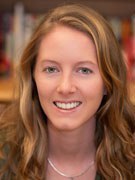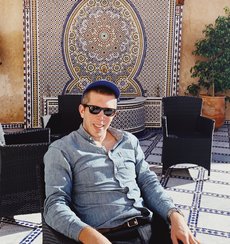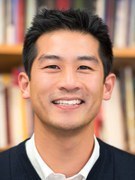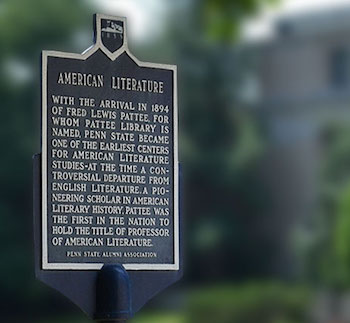The Difference CALS Makes on the Job Market: 2019-2020


The academic job market can be a daunting, difficult place for many Ph.D. graduates. Given that securing a desirable academic position is never a guarantee, graduate students often seek to give themselves every advantage possible, and CALS remains committed to providing them with the necessary support to help them succeed. Recently, several CALS-affiliated graduate students who landed academic positions spoke to us about their research, the job market, and the impact CALS has had in their professional journeys.
Patrick Allen was the recipient of the 2018 CALS Summer Graduate Fellowship in American Literature and Culture. Using that funding, he was able to travel to Howard University’s Moorland-Spingarn Research Center to research Dr. Sarah Loguen Fraser—the Dominican Republic’s first woman doctor—and convert his findings into the publication of an article in Arizona Quarterly. Allen described himself as “incredibly fortunate” to have received such funding. He also noted that the resultant article became the foundation for one of the chapters of his dissertation, “A Practice of Print: Race, Doctoring, and Medicine in Post-Bellum, Pre-Harlem Black Print Culture,” which Allen successfully defended in March.
“I'm certain the chance to focus on and get an article out the door made the fellowship invaluable to my success on the job market,” said Allen.
Allen recently accepted a tenure-track job as Assistant Professor of English at Culver-Stockton College in Canton, Missouri. Allen is excited to be teaching courses in multicultural literature and graphic medicine. Such course focuses intersect with Allen’s ongoing research, including a book chapter that treats the award-winning comic book series Chew, which centers on the crime-solving exploits of U.S. Food and Drug Administration agent Tony Chu, as well as an article on the role of black nurses during the yellow fever epidemic of 1793 in Philadelphia. Allen is also excited about returning to his CALS-sponsored research on Dr. Fraser in order to pursue the publication of her daughter’s heretofore unpublished biography of her.
Another recent graduate who received assistance from CALS is Lisa McGunigal, past recipient of a CALS Graduate Travel to Research Collections award. McGunigal used the CALS funding she received to research famed US historian and novelist Henry Adams and his socialite partner Marian “Clover” Hooper Adams at the Massachusetts Historical Society in Boston as part of her dissertation. That research also led to the publication of an article in the journal American Literary Realism. McGunigal pointed out that beyond simply receiving the award, the whole process of applying and ultimately being successful in the application was a valuable learning experience and a boost of confidence for applying for future grants, such as the Quarry Farm Residency Fellowship with the Center for Mark Twain Studies in Elmira, New York, where she recently spent two weeks living and writing in Twain’s summer house.
“CALS was an important piece of my development as a scholar and job market candidate,” said McGunigal. “The Center supported my research ideas in a concrete way, fostered that research for an article, which then became a relevant talking point with schools when asked about my research productivity.”
McGunigal is currently serving her first year as Visiting Assistant Professor of English at Hope College in Holland, Michigan, where she teaches the course “Sports, Ethics, and Identity from 1800 to the Present” as well as first-year writing. McGunigal recently received a promotion and her title will soon change to Assistant Professor of English Instruction and her teaching responsibilities will expand to include the English department’s popular survey course in American literature. This summer, McGunigal will return to Quarry Farm to deliver an invited lecture on Mark Twain’s poetry marginalia and complete research for an article that treats the conflation between political and domestic spaces in writings by better and lesser known members of the Mount Vernon Ladies’ Association.
Some students, such as Nathaniel (Nate) Windon, are able to take advantage of multiple CALS funding opportunities. Windon was a 2019 recipient of a Graduate Award for Research or Training Seminars and served as the 2017 CALS Dissertation Fellow. Windon spoke to the challenges of building a dissertation from its inception into a serious professional project, and how such development requires time and resources.
“The funding and support I received from CALS as a dissertation fellow gave me the time to accelerate my project's growth and treat it seriously as a book project and not just a degree requirement,” said Windon.
Nate is currently a National Endowment for the Humanities postdoctoral fellow with the Library Company of Philadelphia. Winning a highly competitive NEH postdoctoral fellowship is quite an honor. Indeed, Windon describes the position as one that has been on his “dream CV (curriculum vitae)” for several years now and thus he feels “fulfilled” to have received the backing of the NEH and the the Library Company. With the support of the fellowship, Windon is currently researching the auctioning and manumission of elderly enslaved people and pre-geriatric medicinal science as part of a book project about how American culture came to have an aversion toward old age during the long nineteenth century.
Finally, while at Penn State Derek Lee had an especially intimate connection to the Center, serving as the CALS Graduate Research Assistant during the 2016-2017 school year. Lee says that his active service to CALS was “fantastic” for advancing his professional development skills.
“Two specific things it helped with was being comfortable talking with other scholars and learning how to talk about my research,” said Lee.
Lee also discussed the benefits of attending CALS’ annual First Book Institute, which allowed him to see how other junior scholars presented their work. McGunigal, too, praised the benefits of observing the First Book Institute and absorbing the advice of early career scholars located at institutions across the country.
Currently, Lee is preparing to start a position as Assistant Professor of English at Wake Forest University in the fall semester where he will teach 20th and 21st-century literature. Lee was excited not only to have landed a top tenure-track position, but also to be able to teach in his preferred field. Lee’s research focuses on the government’s psychic spy programs and their connection to late-twentieth-century American literature. In the future he hopes to do work more closely with science fiction theory and speculative fiction by ethnic American writers.
Notwithstanding that the above-award winners received vital financial support from CALS at crucial moments in their Penn State careers, one thing they all stressed was how difficult it is to be on the job market. To that end, they offered some advice to current graduate students who hope to enter the job market in the future. One theme everyone mentioned was the importance of having article publications and conference presentations on one’s CV as evidence of professional development. Allen says he was lucky that the one manuscript he sent out for possible publication as a graduate student was accepted, but that if he had not been so afraid of rejection, he might have been able to bolster his CV with additional publications. Lee recommended graduate students tailor their conference presentations and article submissions and monitor academic job listings well before entering the job market so as to establish a focused, coherent scholarly research program. Lastly, in order to be a successful applicant for positions at smaller colleges and universities like Hope College, McGunigal stressed the importance of diversifying one’s teaching portfolio, citing her own experiences teaching across multiple departments while at Penn State and taking significantly more than the minimum number of courses in teacher training and curricular development in order to strengthen her pedagogy.
As the above accounts suggest, while there is no single formula for success on the academic job market, there are concrete steps that applicants can take to make themselves more appealing to potential employers. While accomplishing such goals can be difficult, having the proper support can make it easier. CALS strives to be that difference maker for Americanist graduate students here at Penn State.


The academic job market can be a daunting, difficult place for many Ph.D. graduates. Given that securing a desirable academic position is never a guarantee, graduate students often seek to give themselves every advantage possible, and CALS remains committed to providing them with the necessary support to help them succeed. Recently, several CALS-affiliated graduate students who landed academic positions spoke to us about their research, the job market, and the impact CALS has had in their professional journeys.
Patrick Allen was the recipient of the 2018 CALS Summer Graduate Fellowship in American Literature and Culture. Using that funding, he was able to travel to Howard University’s Moorland-Spingarn Research Center to research Dr. Sarah Loguen Fraser—the Dominican Republic’s first woman doctor—and convert his findings into the publication of an article in Arizona Quarterly. Allen described himself as “incredibly fortunate” to have received such funding. He also noted that the resultant article became the foundation for one of the chapters of his dissertation, “A Practice of Print: Race, Doctoring, and Medicine in Post-Bellum, Pre-Harlem Black Print Culture,” which Allen successfully defended in March.
“I'm certain the chance to focus on and get an article out the door made the fellowship invaluable to my success on the job market,” said Allen.
Allen recently accepted a tenure-track job as Assistant Professor of English at Culver-Stockton College in Canton, Missouri. Allen is excited to be teaching courses in multicultural literature and graphic medicine. Such course focuses intersect with Allen’s ongoing research, including a book chapter that treats the award-winning comic book series Chew, which centers on the crime-solving exploits of U.S. Food and Drug Administration agent Tony Chu, as well as an article on the role of black nurses during the yellow fever epidemic of 1793 in Philadelphia. Allen is also excited about returning to his CALS-sponsored research on Dr. Fraser in order to pursue the publication of her daughter’s heretofore unpublished biography of her.
Another recent graduate who received assistance from CALS is Lisa McGunigal, past recipient of a CALS Graduate Travel to Research Collections award. McGunigal used the CALS funding she received to research famed US historian and novelist Henry Adams and his socialite partner Marian “Clover” Hooper Adams at the Massachusetts Historical Society in Boston as part of her dissertation. That research also led to the publication of an article in the journal American Literary Realism. McGunigal pointed out that beyond simply receiving the award, the whole process of applying and ultimately being successful in the application was a valuable learning experience and a boost of confidence for applying for future grants, such as the Quarry Farm Residency Fellowship with the Center for Mark Twain Studies in Elmira, New York, where she recently spent two weeks living and writing in Twain’s summer house.
“CALS was an important piece of my development as a scholar and job market candidate,” said McGunigal. “The Center supported my research ideas in a concrete way, fostered that research for an article, which then became a relevant talking point with schools when asked about my research productivity.”
McGunigal is currently serving her first year as Visiting Assistant Professor of English at Hope College in Holland, Michigan, where she teaches the course “Sports, Ethics, and Identity from 1800 to the Present” as well as first-year writing. McGunigal recently received a promotion and her title will soon change to Assistant Professor of English Instruction and her teaching responsibilities will expand to include the English department’s popular survey course in American literature. This summer, McGunigal will return to Quarry Farm to deliver an invited lecture on Mark Twain’s poetry marginalia and complete research for an article that treats the conflation between political and domestic spaces in writings by better and lesser known members of the Mount Vernon Ladies’ Association.
Some students, such as Nathaniel (Nate) Windon, are able to take advantage of multiple CALS funding opportunities. Windon was a 2019 recipient of a Graduate Award for Research or Training Seminars and served as the 2017 CALS Dissertation Fellow. Windon spoke to the challenges of building a dissertation from its inception into a serious professional project, and how such development requires time and resources.
“The funding and support I received from CALS as a dissertation fellow gave me the time to accelerate my project's growth and treat it seriously as a book project and not just a degree requirement,” said Windon.
Nate is currently a National Endowment for the Humanities postdoctoral fellow with the Library Company of Philadelphia. Winning a highly competitive NEH postdoctoral fellowship is quite an honor. Indeed, Windon describes the position as one that has been on his “dream CV (curriculum vitae)” for several years now and thus he feels “fulfilled” to have received the backing of the NEH and the the Library Company. With the support of the fellowship, Windon is currently researching the auctioning and manumission of elderly enslaved people and pre-geriatric medicinal science as part of a book project about how American culture came to have an aversion toward old age during the long nineteenth century.
Finally, while at Penn State Derek Lee had an especially intimate connection to the Center, serving as the CALS Graduate Research Assistant during the 2016-2017 school year. Lee says that his active service to CALS was “fantastic” for advancing his professional development skills.
“Two specific things it helped with was being comfortable talking with other scholars and learning how to talk about my research,” said Lee.
Lee also discussed the benefits of attending CALS’ annual First Book Institute, which allowed him to see how other junior scholars presented their work. McGunigal, too, praised the benefits of observing the First Book Institute and absorbing the advice of early career scholars located at institutions across the country.
Currently, Lee is preparing to start a position as Assistant Professor of English at Wake Forest University in the fall semester where he will teach 20th and 21st-century literature. Lee was excited not only to have landed a top tenure-track position, but also to be able to teach in his preferred field. Lee’s research focuses on the government’s psychic spy programs and their connection to late-twentieth-century American literature. In the future he hopes to do work more closely with science fiction theory and speculative fiction by ethnic American writers.
Notwithstanding that the above-award winners received vital financial support from CALS at crucial moments in their Penn State careers, one thing they all stressed was how difficult it is to be on the job market. To that end, they offered some advice to current graduate students who hope to enter the job market in the future. One theme everyone mentioned was the importance of having article publications and conference presentations on one’s CV as evidence of professional development. Allen says he was lucky that the one manuscript he sent out for possible publication as a graduate student was accepted, but that if he had not been so afraid of rejection, he might have been able to bolster his CV with additional publications. Lee recommended graduate students tailor their conference presentations and article submissions and monitor academic job listings well before entering the job market so as to establish a focused, coherent scholarly research program. Lastly, in order to be a successful applicant for positions at smaller colleges and universities like Hope College, McGunigal stressed the importance of diversifying one’s teaching portfolio, citing her own experiences teaching across multiple departments while at Penn State and taking significantly more than the minimum number of courses in teacher training and curricular development in order to strengthen her pedagogy.
As the above accounts suggest, while there is no single formula for success on the academic job market, there are concrete steps that applicants can take to make themselves more appealing to potential employers. While accomplishing such goals can be difficult, having the proper support can make it easier. CALS strives to be that difference maker for Americanist graduate students here at Penn State.



